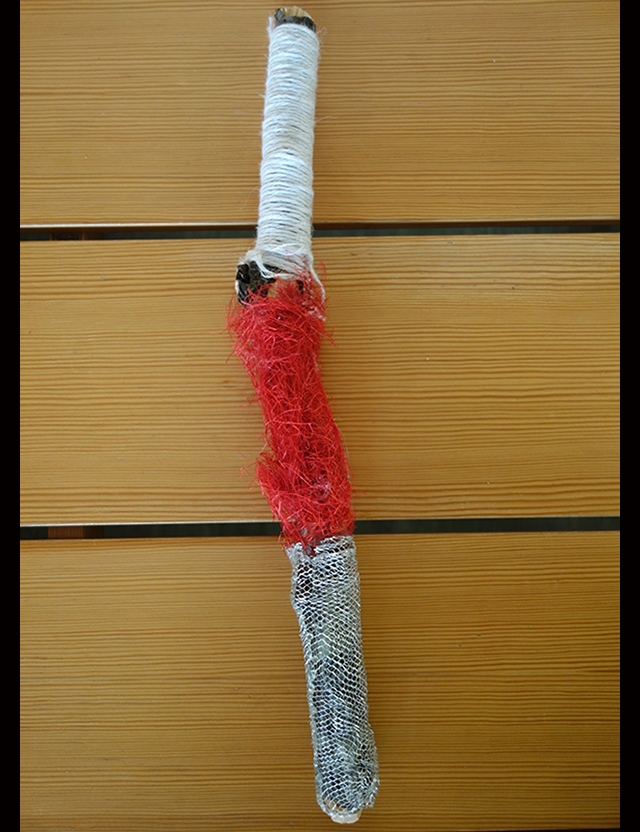
Would you like to analyse and improve the possibilities of deafblind people? Then this is the programme you are looking for!
The Master's degree in Deafblindness is a unique programme
during which you acquire theoretical and methodological skills.
These skills will enable you to analyse the impact of combined
visual and hearing impairments (“deafblindness”) on
development, daily functioning and quality of life. You will learn
to apply this knowledge in the contexts of research, assessment and
intervention. The programme is especially interesting for those who
are already working as professionals and who would like to expand
their basic knowledge and research skills.
The programme starts with the course Introduction to people
with deafblindness. In this course, you will learn about
fundamental developmental processes, including topics like early
symbolic communication embodied cognition, and the acquisition of
sign language.
After the introductory course, students receive coaching in
methodology. You will also perform a practical training and write a
learner's report. In addition, you will carry out research and
write a master's thesis.
You will find the exact division of courses on this page once the programme for 2025/2026 is set.
| Semesters | ||||
|---|---|---|---|---|
| CoursesCourse Catalog > | 1a | 1b | 2a | 2b |
| Introduction to Deafblindness (5 EC) | ||||
| Theories and Models (5 EC) | ||||
| Internship (20 EC) | ||||
| Master thesis (20 EC) | ||||
| Qualitative Research Methods (5 EC) | ||||
| Participation and Policy (5 EC) | ||||
| Specific requirements | More information |
|---|---|
| previous education |
|
| knowledge minimum |
Sufficient courses on:
Previous experience with academic writing (e.g., Bachelor thesis), is desirable, but not an entry requirement. |
| Study programme | Organization | Transition |
|---|---|---|
| All Research universities | Via a pre-master with a maximum of |
|
| Academic training primary school teacher | All Research universities |
No additional requirements More information:Note: Applies to all bachelors in Pedagogical Sciences at a research university (not only to Academic primary school teacher) |
| Study programme | Organization | Transition |
|---|---|---|
| Pedagogical Sciences | University of Groningen | No additional requirements |
For more information about
| Type of student | Deadline | Start course |
|---|---|---|
| Dutch students | 01 June 2026 | 01 September 2026 |
| EU/EEA students | 01 June 2026 | 01 September 2026 |
| non-EU/EEA students | 01 May 2026 | 01 September 2026 |
| Specific requirements | More information |
|---|---|
| previous education |
|
| knowledge minimum |
Sufficient courses on:
Previous experience with academic writing (e.g., Bachelor thesis), is desirable, but not an entry requirement. |
| language test |
The official language of the programme is English. Non-native English speakers must provide evidence of satisfactory results for one of the standard tests mentioned below. Official test results must be supplied. Please note, we do not accept Institutional TOEFL results as evidence of English proficiency. IELTS: overall 6.5; writing 6.5; speaking 6.5 | TOEFL internet-based: overall 90; speaking 22; writing 24 | CAE / CPE: C, B or A | Dutch pre-University diploma (VWO) including English: 5.5 for English | |
To apply for this programme, first go to Studielink. After you have
submitted your details in Studielink, you will receive an e-mail
with the information necessary to activate your user account for
The Progress Portal.
See the application
procedure for some guidance in Progress Portal.
Then, please upload the following documents in The Progress Portal:
* a certified copy of the (Bachelor) diploma on the basis of
which you ask admission to our programme (both original language
and translated in English)
* a certified copy of your transcript of records (both original
language and translated in English)
* a copy of your passport or ID card
If you have any doubts about your application, please contact us
at: admissionsoffice rug.nl
For more information about the tracks, please contact the study advisor: studieadvies.pedok rug.nl
| Type of student | Deadline | Start course |
|---|---|---|
| Dutch students | 01 June 2026 | 01 September 2026 |
| EU/EEA students | 01 June 2026 | 01 September 2026 |
| non-EU/EEA students | 01 May 2026 | 01 September 2026 |
After graduation, you have the knowledge and skills needed to work in the field of education related to deafblindness. This programme gives you a good basis for consultancy work in education and for further research.
Career services
BSS
Where do you want to work after your studies? You can
contact
Career
Services
already during your
studies. They will help you orientate on your career, develop your
skills, apply for jobs and find an internship.
Apply expertise in assessment and intervention tools within a clinical and educational settings in inclusive and special needs education or related fields, for example in complex communication needs such as autism, mutism, and Profound Intellectual and Motor Disabilities (PIMD).
Establish and manage an independent practice to serve diverse client needs.
Conduct scientific research or pursue a PhD to advance knowledge and practice in the field.
